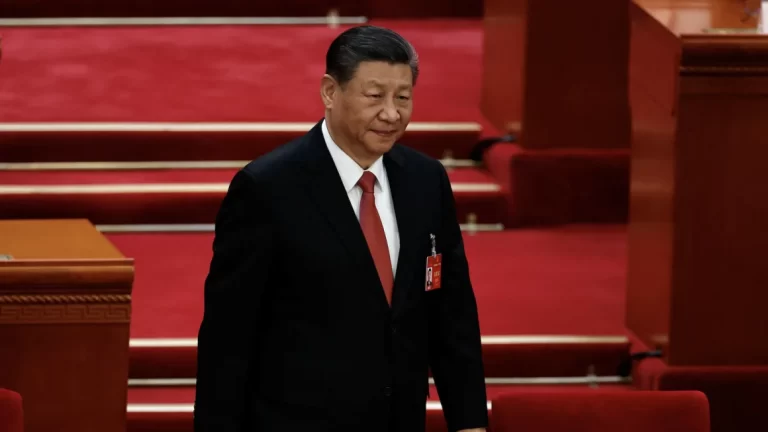Chinese leader Xi Jinping met more than a dozen US CEOs and academics on Wednesday as Beijing renewed efforts to woo back foreign investors and mend strained relations with the United States.
Foreign direct investment in China has slumped in recent months as a combination of slower growth, regulatory crackdowns, onerous national security legislation and questions about the country’s long-term growth prospects have shaken confidence in the world’s second biggest economy.
The group included Cristiano Amon of Qualcomm (QCOM), Raj Subramaniam of FedEx (FDX) and Stephen Schwarzman of the Blackstone Group (BX). The meeting at Beijing’s Great Hall of the People came after the close of a major government forum that has invited global business leaders to engage with Chinese government officials over many years.
About 100 global CEOs, as well as the heads of international organizations such as the International Monetary Fund and the World Bank, were in the Chinese capital this week for the annual China Development Forum. More than 30 of them are US executives, according to Chinese state media.
Beijing is trying to revive confidence and stabilize foreign trade and investment as the country faces its biggest economic challenges in decades. It has rolled out a series of measures since last year, including a 24-point action plan published by the cabinet earlier this month, to attract foreign investment and expand market access in high-tech sectors.
But global investors remain wary of China’s rising scrutiny of Western companies as well as a structural slowdown. In the first two months of 2024, foreign direct investment (FDI) into the country shrank nearly 20% from a year ago, underscoring weak confidence among global executives.
That fall came after a decline of 8% in 2023, according to the Commerce Ministry. Another gauge of FDI — direct investment liabilities — showed a 82% slump in 2023, according to figures released by the State Administration of Foreign Exchange. It was the lowest in 30 years.
According to a survey released by the American Chamber of Commerce in China last month, 57% of US firms lacked confidence that China would further open its markets to foreign companies.
China has set this year’s economic growth target at around 5%, the same as last year’s. But market watchers say the goal is “ambitious,” given a lack of major stimulus measures by the central government to directly address Chinese consumers’ weak confidence and their unwillingness to spend money.
The world’s second largest economy is plagued by a myriad of problems. They include a prolonged downturn in real estate, deflation, debt, a shrinking population and a shift in economic policy towards ideological objectives that has rattled the private sector and scared away foreign investors.


